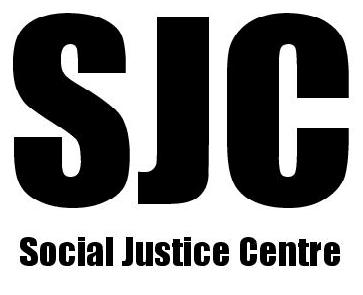Decolonizing Education in Canada
Project Team Leader: Seema Ahluwalia, Department of Sociology, KPU, Seema.Ahluwalia@kpu.ca
The SJC recognizes that a major threat to Indigenous peoples’ rights to self-determination is the ongoing myth of a peaceful, benevolent and conciliatory Canadian state. It is difficult to reconcile this myth, which is widely taught to Canadian students, with the Canadian state’s ongoing colonial expansion into Indigenous peoples' territories, the forced transfer of Indigenous children from their nations to the Canadian state, and other actions that Indigenous peoples experience as deliberate attempts by settler colonial states to destroy their ability to exist as nations. .
The SJC notes that this colonial fiction is asserted in the Truth and Reconciliation Commission’s (TRC) confusing and contradictory “Calls to Action” that were released as part of their final report in 2015. For example, among the 94 Calls to Action is 45. (i) and (ii). They are as follows: (i) Repudiate concepts used to justify European sovereignty over Indigenous lands and peoples such as the Doctrine of Discovery and terra nullius. (ii) Adopt and implement the United Nations Declaration on the Rights of Indigenous Peoples as the framework for reconciliation. iii. Renew or establish Treaty relationships based on principles of mutual recognition, mutual respect, and shared responsibility for maintaining those relationships into the future.
Section 45 (i) calls for a repudiation of the colonial myth of European sovereignty over Indigenous territories yet section (ii) reasserts this colonial framework by calling for the adoption of the United Nations Declaration on the Rights of Indigenous Peoples (UNDRIP)as a framework for reconciliation. This call for action appears to be oblivious to concerns being raised by Indigenous leaders, jurists, scholars, and activists that the UNDRIP continues the tradition of domesticating the sovereignty of Indigenous nations, leaving the goal of “self-determination” to be resolved within the parameters of the very nation-state which has colonized them. The UNDRIP and the TRC Calls to Action remain unworkable frameworks devoid of any real strategies for decolonization while satisfying the need for settler colonial states to create the appearance of caring about the hardships faced by Indigenous people, even while carrying out destructive actions against Indigenous nations. The TRC calls to action are a preemptive and premature call for reconciliation and will do little to prevent the ongoing strategies used by settler colonial states to subvert the ability of Indigenous nations to maintain their sacred connection to their territories, assert their sovereign title to, and jurisdiction over, their territories, practice their languages, systems of governance, kinship and spirituality, and transmit the positive characteristics of their nations to their forthcoming generation of children.
The SJC recognizes the urgent need to create and mobilize decolonized forms of knowledge about Canada’s relationships with Indigenous peoples that center Indigenous perspectives, scholarship, and knowledge bases especially as these pertain to issues of land rights, inherent Indigenous title, and treaties. This approach eschews the notion of “Indigenization” of education and embraces the wisdom of “decolonizing” Canadian education and society. In particular, the work will focus on how Canadian education nurtures ignorance about Indigenous peoples through four key strategies: 1) psychic distancing, 2) collective denial, 3) historical amnesia and 4) cognitive imperialism. Students in key third and fourth year sociology classes will conduct original research, using research methods such as content analysis, participatory action, and autoethnography to interrogate the methods used by settler states to manufacture consent from citizens for policies and practices that threaten the existence of Indigenous nations.
For more information: Seema Ahluwalia, Department of Sociology, KPU, Seema.Ahluwalia@kpu.ca



